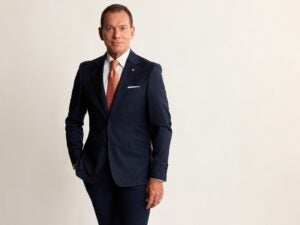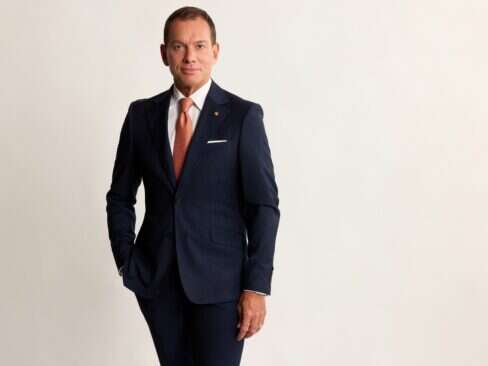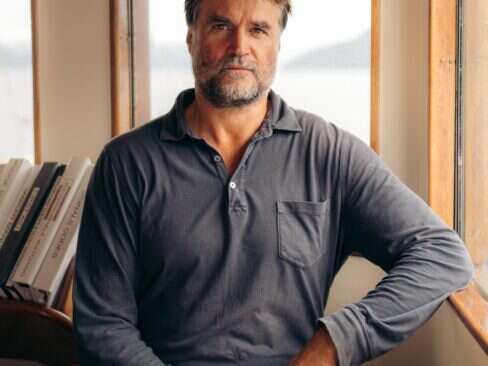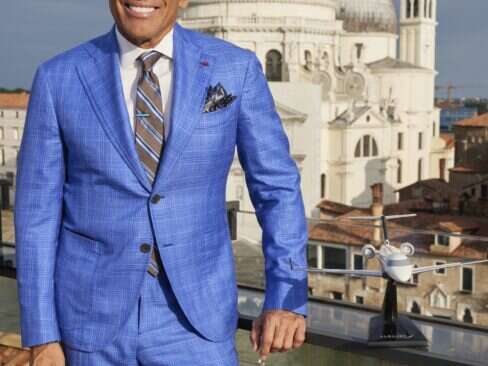

How did Kempinski get better talent onto its team? It fired its entire Human Resources team, re-inventing how it finds new employees.
How does the company decide on new services? It has a hotel version of Shark Tank where managers present their ideas and have them voted up or down. Recently, Elite Traveler Editor-in-Chief, Douglas Gollan, lunched with COO Duncan O’Rourke at the Kempinski Geneva where he talked about how one of the oldest luxury hotel groups is breaking new ground.
ET: So 2012 was a good year Kempinski?
Duncan O’Rourke: During the global economic crisis, when other companies were laying off, we took the opportunity to hire seven to eight key people for the management team because we were confident that the crisis was going to pass. At the same time we also restructured our sales and marketing departments completely. Our properties’ geographic locations helped to avoid the worst of the crisis. We also stayed true to our core values in that we believe and understand that luxury is absolutely limited and therefore we are the only company to keep our growth consistent while many other companies are announcing 4,000-5,000 new hotels over the next few years. Kempinski is the oldest luxury hotel brand, established in 1897, and we have decided to align the number of hotels with our age, so eventually we will have around 120-122 hotels, but that is it.
ET: On a global basis, where are Kempinski’s “strongholds”? Where is the brand looking to expand?
Duncan O’Rourke: Traditionally our big feeder market has been Germany. We are from Germany – we have the Adlon and Bristol in Berlin and our overall presence is very strong in that country. We are a European company so our focus is on Europe. We are looking at projects in Paris and London and are very strong in Eastern Europe and Russia. We were the first international brand to enter Moscow and we are just about to open a second hotel there and we have a lovely hotel in St. Petersburg. We are extremely strong in China – we have 25 hotels (including developments) in China, but we won’t go any higher than that. We are looking into the Asia-Pacific region, where we are already the market leader in both Bangkok and Jakarta. Now we are concentrating on Africa, as our next strategic step. Coinciding with that is our strong presence in the Middle East, which includes our Hotel in Ajman, the Emirates Palace in Abu Dhabi, our Bahrain property and more.
We have decided not to pursue hotels in the United States. No European hotel company has ever gone into the United States and grown successfully. Many European hotel companies tried and then left. To establish your presence in the US you will need more than just five hotels in select destinations – you need to be everywhere. Another point is that the individual, non-systemized way of working in Europe doesn’t work as well in America. Many well established US brands certainly don’t make it easy for a newcomer to break into that market either. We are looking for a hotel in New York because it is part of the travel circle of our clients, but we will not consider secondary locations as they don’t fit our customer profile and their travel habits.
ET: How do you separate yourself from the rest of the luxury hotel companies?
Duncan O’Rourke: We have made our lives extremely difficult compared to other five-star companies. A lot of times you can blindfold me, take me into the lobby and I can already tell you whether it’s an A, B or C hotel immediately. We have positioned ourselves very differently because we don’t want that. Geneva has to be Geneva and Abu Dhabi has to be Abu Dhabi and when you go to Bangkok it better feel like you’re in Bangkok. Nothing has to be the same.
On top of all that, we don’t even call most of our hotels Kempinski. We are fortunate that many of our hotels are historical buildings with a heritage name and we fundamentally believe that iconic hotels should keep their name. We will add the Kempinski name where it adds value—like at the Munich Airport Hotel—because it pushes the property forward.
So then we looked at ourselves and asked “Where do we draw the ‘red line?’. How do you know you’re in a Kempinski Hotel?” What we have done is to give each hotel a touch of European flair, representing what we believe in and stand for. We started the “Lady in Red” concierge, which is an easily recognized woman dressed in red who can fix any problem in the hotel. It’s similar to going to someone’s house and the host greets you and says “Please sit down. What can I get you?” We have a ‘Lady in Red’ in every hotel. We have some other key touch points, but not many. For us it is extremely important that you are feeling, respecting, and embracing the culture of each location you are staying in.
ET: What is the strategy for Kempinski going forward?
Duncan O’Rourke: Kempinski is a good company, but we want to become the best company and we have three strategies and a five to six year plan that we hope will allow us to achieve that.
The first strategy is talent. We have to hire the right people. We used to have a vice president of human resources but that traditional structure doesn’t work. We hired a vice president of talent, a vice president of training and education, and a vice president of people admin, who executes the contract. This way the traditional HR job is much more specialized and can focus on the three different areas independently.
We also fly all general managers to Munich once a year, along with all the hotel schools in Europe and individuals interested in joining Kempinski for a career day and that’s where we make our hiring decisions. In the old days human resources would take ten resumes back and then wouldn’t remember who the individuals were and what they were like. So we bring every general manager of every Kempinski hotel in the world together and we hire talent on the spot. Everybody is talking about a war for talent, and we said that in a war you need to mobilize every resource you have in order to win. We also ask who is the decision maker? If the wrong person is working for the company, whose fault is it? So now our general managers have to interview every single person that works at the hotel. This whole process came about because in our Austrian, German and Swiss hotels they had an apprenticeship where students would go to learn and then when they graduated we wouldn’t even hire them, they would go to work for other hotels. We do things very differently now, we’ve even thrown away the evaluations for current managers. Now the general managers just have a two hour conversation with each department manager. No checking boxes, just a two hour conversation. So this is how we recruit, which means we spend 60 percent of our time on people.
ET: And are there other key points?
Duncan O’Rourke: The second strategy is innovation. Our president walked into our office one time and said, “The only innovation you guys have contributed to this industry is learning to fold the toilet paper into a triangle”. We realized we needed to innovate in every hotel, so now each property has innovation offices and we have put general managers into groups and workshops that help them come up with ideas. When the head office says each hotel has to put their soap like this or that, only half will do it. When it is their own idea they will all do it. So now we have workshops. The groups work for a year on a concept and then they present it to each other at the general manager meetings and put it to a vote. It’s ruthless because when ten people work a year on something they are invested in it. 80 percent is the cut off; if it gets 80 percent of the vote we do it. The “Lady in Red” came out of this approach.
ET: You’ve talked before about food?
Duncan O’Rourke: Our third strategy is food and beverage. We have good meals and good restaurants but four or five years ago, when owners had seven to eight restaurants in a hotel, we had no idea what we were doing. We are going to move from a rooms-driven company to food & beverage-driven company with rooms, which fits our history and tradition as restaurateurs. We hired Stefan Bellon, who worked with Alain Ducasse, and Michel Gehrig as the corporate chef (note: Michel has since moved to VP Talent). We also hired very experienced and well known chefs who will be part of workshops traveling the Kempinski properties. When you go to our hotels around the world, you realize not every hotel can afford to have a top baker or chocolatier. So we hire one person permanently and send them on a world tour around our properties so they can experience the property and enhance the cuisine. I went to London recently and there were a few bakeries that had wonderful window displays. I met the manager of one and I told him I wanted the guy who did the layout for a full year so I could send him around our breakfast buffets and restaurants to come up with something different. This is a three year process but the concepts we are putting into our hotels’ food & beverage outlets are cutting edge and extremely successful.
ET: Can you talk a little bit about Kempinski’s portfolio and it being a private company?
Duncan O’Rourke: Kempinski is owned by a sovereign fund in Thailand so it’s private. Our shareholders take a long term view – they don’t get pressured by share prices. When everyone was laying off we looked into the future and hired people like Bellon and Gehrig. We are generally a management company – we offer hotel management expertise for a fee. Overall, 90 percent of our contracts are management contracts. We have a couple of leases, four or five, that sit on our balance sheet. We own the Hotel Vier Jahreszeiten in Munich outright. We started a joint venture with the largest tourism bureau in the world, Beijing Tourism Board. That’s why we have 25 hotels in China. We have financial interest ranging from 11-15 percent in our Moscow and Budapest hotels. We also realized—relating to capping our growth—that we want to remain exclusive. Though luxury is limited we are also very entrepreneurial in what we do, so we asked why would we miss out on business in China just because we are capping our hotel numbers? So together with BTG we are developing NUO, which means ‘the golden promise’ in Chinese. We are going to open in Hong Kong, Shanghai and Beijing, with another 20 hotels in the pipeline. This is a five-star line of hotels that reflect the modern art of China. We are also doing the same with Shaza in the Middle East, with one hotel already open in Medina, and others set for both Bahrain and Dubai.
ET: What’s your background and how long have you been with Kempinski?
Duncan O’Rourke: I’ve been with Kempinski for nine years, four in this position. I was born in South Africa but I started my career in Geneva with Hilton when I finished hotel school. Then I went to the United States to work with Renaissance, which was opening a Washington, D.C. hotel location with Joseph Effner. After that I went to Russia with Marco Polo in the Gorbachev years. Then I joined Rosewood which was small at that time – ten to 12 hotels with 30-year-old general managers – and I realized I was just going to sit there and wait the rest of my life for the next step. Bruno Schöpfer, who had left Mandarin, took over Mövenpick and he wanted someone to head up the restaurant division in the mid 90s. So I left the hotel business to head up their restaurant division in Switzerland for four years before I joined Kempinski regionally in the Middle East. Then I became COO four years ago.










